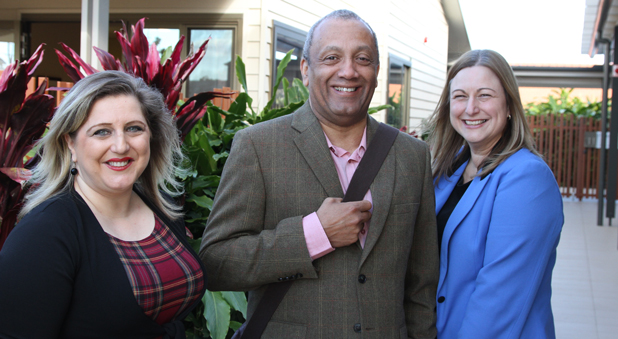Scottish theologian Professor John Swinton, who is in Australia consulting for the HammondCare health and aged care group, has urged Christians to resist the renewed push for the introduction of assisted suicide.
Professor Swinton holds the chair in Divinity and is Professor of Practical Theology and Pastoral Care at the University of Aberdeen. He was the keynote speaker at last year’s Dementia and Faith Conference in Sydney and his recent book, Dementia: Living in the memories of God won him the Michael Ramsey Prize for theological writing.
His work has brought him into contact with advocates for assisted suicide. “Why is it that people say euthanasia is okay in the context of dementia?” he asks. “It has to do with the sense that you somehow lose yourself or you’re somehow not the person used to be and so, therefore, your life isn’t worth living. My experience [of] people with dementia, and also working with carer services who work alongside people with dementia, is that this is simply not the case.”
He says it is vital for sufferers to have good relationships, a good sense of spirituality, a sense of security and trust. “If you get somebody in a good solid environment you can actually live very well with dementia. There is an element of sadness and brokenness, of course, but there are also elements of positivity and hope.”
Professor Swinton says o en the issues raised by euthanasia proponents are “projection”.
“You encounter someone who has a disability – say, someone who has paraplegia – and you think, ‘Oh, wouldn’t it be awful if I had paraplegia?’ You imagine yourself moving from your current situation into their situation, which means it’s a story of loss and brokenness. Whereas if you speak to people with paraplegia you may get stories of loss and brokenness, but you’ll also get stories of relationship and possibilities in which you can live well within your community.
“In relation to euthanasia, you see that quite a lot people use their imagination and project onto individuals what they think it would be like to have this particular experience and use that as a rationale for a kind of ethical argument for euthanasia. Whereas if you are living through certain things the experience is oftentimes very, very different – assuming that you have good quality of care and a solid community around you.”
Media personality Andrew Denton has used his father’s battle with heart disease as an example of why the law should allow assisted suicide. Victoria is considering a Euthanasia Bill and there will be pressure for similar legislation in NSW as early as this year.
Professor Swinton says we should learn from the experiences of countries where assisted suicide has been introduced. “They are starting to see the downside, particularly in something like dementia, because the way – as I understand – the legislation runs, basically as soon as you have a diagnosis of dementia you can, in principle, ask to be euthanised,” he says.
“This means people end up being euthanised at stages in their lives when actually they seem to be quite together. You could imagine your great-aunt Sophie, who suddenly disappears. The last thing you saw she had a diagnosis and then you don’t see her again. That’s very traumatic for families but it’s also very traumatic for doctors and medical sta who have to actually engage in these practices.”
Professor Swinton says there should be a clear Christian voice in the public discussion. “I think it is a very important thing to have on the agenda because the Christian perspective on what a human being is, what human life is and what human value is, is fundamentally important for the conversation. Whether we ‘win’ or whether we ‘lose’ is not the point. The key thing is that we must have a voice in the conversation and alternatives need to be clearly and fairly laid out.
“One of my concerns about the conversation around euthanasia is that it kind of masquerades as an ethical discussion but actually it is like a clash of worlds. A Christian perspective says human life is inherently valuable because God places value on it. Society tends to think the only thing that is valuable is choice – to live a life where you have choice, freedom and autonomy.
“So it’s not simply a matter of ethics, right and wrong. It is actually two completely different ways of looking at the world.”
Photo: Professor Swinton with Marie Alford, Head of Implementation, Dementia Centre (left) and Natalie Duggan, Head of Western Region, HammondCare At Home (right).



























